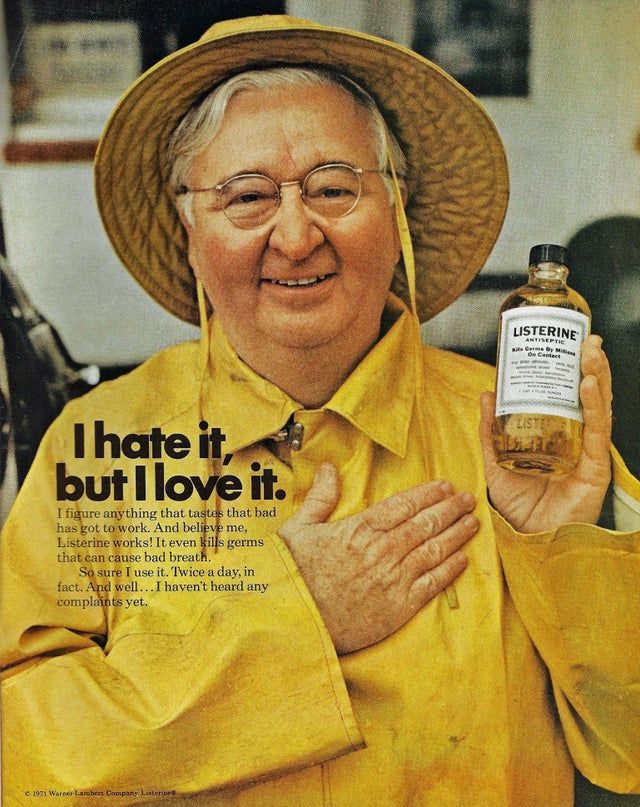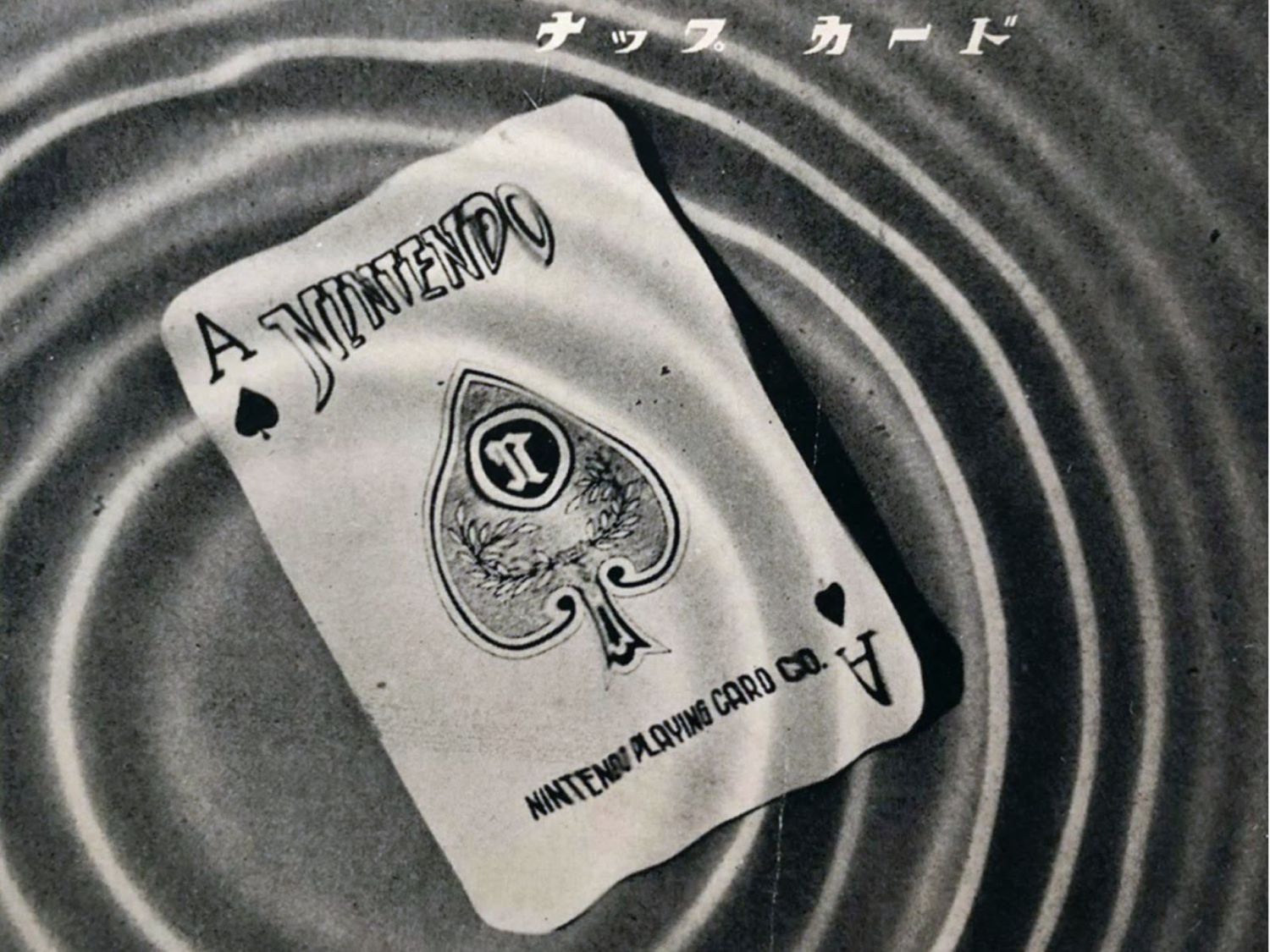
Lean into your flaws.
How Listerine advertised its worst qualities to lead the market.
Listerine tastes awful. That's a fact. Here's the history and psychology behind why people love this superior mouthwash.
The mouthwash you know and love today debuted as a floor cleaner, was remarketed as a cure for dandruff, and spent its pre-consumer years as a surgical disinfectant.
Listerine was developed for surgical use after Louis Pasteur's theory of invisible germs became popular. A scrappy surgeon named Lister wanted to develop something that could be used to manage infections before they started. So he used airborne antiseptic during his surgeries and mortality rates began to fall.
In his honor, Dr. Joseph Lawrence and Robert Wood Johnson, founder of Johnson & Johnson, named their new product Listerine after him. By 1914, Listerine becomes the first prescription drug to be sold over the counter to consumers.
Anything that tastes this bad has got to work
From its early days on the market, Listerine leaned into two very important things to sell its product. First, the product's benefit — to cure bad breath. And second, the product's biggest flaw — its harsh alcohol taste.
In 1920, Listerine began labelling "bad breath" as "halitosis." Because this latinate term had more of a scientific ring to it, consumers started seeing the brand as an essential part of their daily mouth healthcare. Sales rose and close-talkers rejoiced.
On the flipside, Listerine was once marketed as a floor cleaner because, well, it kind of tasted like one. Rumor has it that Listerine tried a formula that was a little less intense, but it didn't do well because people couldn't "feel it working."
For better or worse, I use Listerine daily and I've tried other brands and I can attest to that. There's something about the burning sensation of Listerine that reassures you of the product's merit.
I hate it, but I love it
In the early 70s, mouthwash meant Listerine. That is until Proctor & Gamble released a competitor product called Scope. Scope featured a secret ingredient: minty fresh flavoring. They marketed this hard, attacking Listerine for leaving people's breath smelling like medicine.
You see, at the time Listerine still tasted (and smelled) like antiseptic. It was developed for surgery and hadn't changed a bit since the 1800s. Listerine was developing its own minty response to Scope, but they still had plenty of surgery-era Listerine packaged and ready to sell.
So they ran a little ad campaign that highlighted the product's biggest flaw: its awful taste.

The copy is great in this ad.
It starts with the fact that Listerine tastes awful, but that this taste also indicates the product is working. At the end, the ad leaves you with the biggest benefit: "I haven't heard any complaints yet." It cures bad breath, plain and simple.
And the campaign worked. Scope barely dented Listerine's sales in the long run. Listerine is still top dog in the mouthwash department today.
The Pratfall Effect
There's a bit of psychology that explains why Listerine's "I hate it, but I love it" advertising campaign worked so well. It's called The Pratfall Effect.
In 1966, social scientist Eliot Aronson ran an experiment.
He had a hunch that people who were considered "superior" by others could become more attractive by committing a small blunder.
So he got together 48 college aged males and had them listen to a tape recording of someone answering questions about themselves. These recordings had four distinct scenarios.
The first was an honor student and athlete answering a series of trivia questions, an average student answering the same questions, an honor student and athlete answering the questions then spilling coffee on themselves, and the average student answering the questions then spilling the coffee.
An interesting result came of these last two subjects. The honor student and athelete who spilled coffee were seen to be more likeable than the one who didn't. However, the likeability of the average student who spilled coffee actually decreased and was the least likeable subject on the recording.
Superior products are made more endearing by their flaws
Listerine was the first antiseptic mouthwash and was trusted by millions of people by the time Scope came to market with its minty fresh competitor. It was seen as the superior product because it had been in people's homes for over half a century.
People didn't care about minty fresh breath at the time. They simply didn't want bad breath. And they wanted to feel the product working.
Listerine offered it all. Its medicinal taste could be forgiven.
That's The Pratfall Effect at work. It can easily be applied to a superior product like Listerine to highlight the product's flaws and make that product more endearing to consumers.
— Mike Doane
P.S. Don't walk away empty-handed
Above the Fold is a newsletter about the power of marketing. Every week I send stories just like these straight to your inbox.



